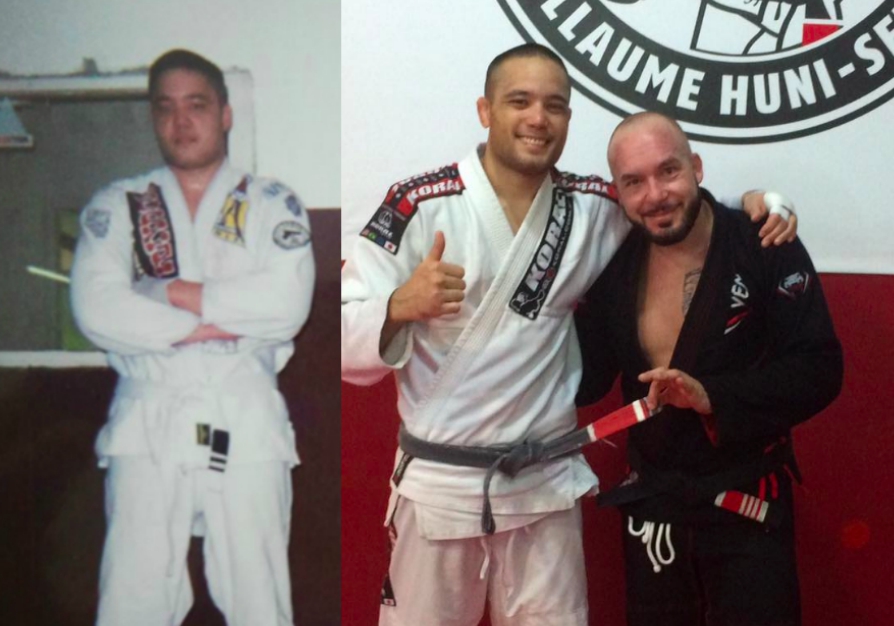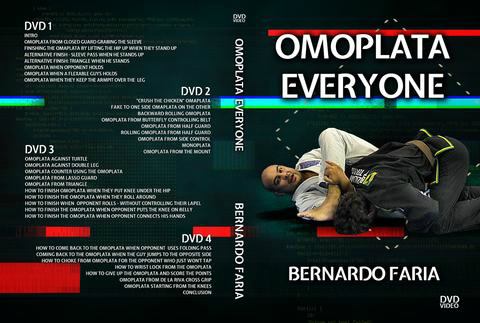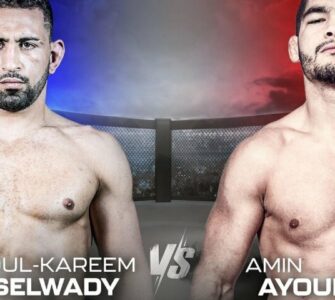Why does it take so many years (for the average practitioner) to get a black belt? This is quite complicated but let’s consider a few factors.
The average time it takes someone to reach black belt level is around 10 years, although elite competitors usually get there much faster. Let’s take a look at a couple of factors which will determine how fast you get your black belt.
- Training frequency. A huge factor will be training frequency. Put simply, all else being equal, the more you train, the faster you get better and the faster you will reach black belt level. Most regular practitioners train around 2 to 3 times a week for a total of 3 to 4 hours per week. Elite athletes can train as much as twice or three times per day. For numbers sake, let’s think of an elite athlete that trains twice a day, 6 days a week. That’s 12 training sessions which equals at the very least 12 hours of mat time per week. That’s around 3 or 4 times more than your average practitioner which also means that on average, the elite athlete will improve 3 or 4 times as fast as the casual practitioner. If you want to achieve the black belt rank faster, one factor that will help is increasing training frequency. Make sure however that you don’t overdo it and get into overtraining (mentally or physically). As a guideline, it’s generally ok to aim for 2-4 training sessions a week if you are doing Jiu Jitsu as a hobby and 6+ training sessions a week if you decide you want to compete.

Figure 1. If you want to be a successful competitor, you will have to train much more than 3 times a week.
- Training methodology. Coupled with training frequency is training methodology and this one usually falls on your instructor. There’s a very big difference between training for one hour and doing free sparring and training for one hour, drilling a certain technique from a certain situation and then sparring in that position isolated followed by some free sparring. The progress made in the second situation will most likely be bigger than in the first.

Figure 2. Your instructor’s skills at teaching will prove to be very important in your development.
Make sure you train smart and that you always have a target in mind for every training session and work on that goal.
- Instruction quality. Obviously one of the most important things is the quality of the teaching you get. Good instructors will help you spot details that you are missing, will help you create a game plan and will help you focus your training sessions on the skills you need to improve. Make sure you train in a place where your head instructor knows his stuff. While being an elite athlete doesn’t mean he is an elite teacher, generally try to learn from instructors who at least had some competitive experience.
- Progress rate. This one differs from practitioner to practitioner. There are people who learn faster, there are people who need to repeat a move one hundred times before they are able to pull it off. One thing you have to realize is that progression will not happen all the time. Sometimes you will plateau, sometimes you will progress faster, sometimes slower, it’s never linear. There are a few things you can do to make sure you catch moves easier. First would be learning the Jiu Jitsu concepts very well (hip movement, framing,etc). That way you will be able to understand the mechanics behind most moves and help you reproduce them. Another thing you could do is make sure your body is athletic enough to pull off those moves. Think core control, hip movement, framing, being able to posture. All are very important in making sure you are able to perform most moves.
- A fantastic tool to accelerate your development in Jiu Jitsu. Competitions have two very important advantages. First, when you have an upcoming competition, you probably will up your training frequency and quality. That means you are training better and longer to prepare for competition. If that happens for 4 weeks, you will have 4 weeks in which you’ve trained better than you would usually. When it comes to the actual competitions, they will make it clear to you which techniques work and which don’t. You will see how your techniques get countered and you will eventually start training to prepare for those counters.
- Obviously being passionate about Jiu Jitsu will help everything. It will make training longer and harder easier, it will make you think about Jiu Jitsu all the time (which in turn will make you grow faster) and it will encourage you to be consistent with your training. It’s extremely hard to be an elite competitor in Jiu Jitsu and not enjoy Jiu Jitsu to a great extent.
Think of how long the Miyao brothers train each day. That level of commitment is not possible without being passionate about it.

Figure 3. Being passionate about Jiu Jitsu will help you in whatever you want to achieve in and with Jiu Jitsu.
- Consistency and time off. Holidays, injuries, periods of your life where you are extremely busy or have other personal issues are all times where you are susceptible of taking a break from Jiu Jitsu. Breaks are a dangerous thing to your overall progression. Missing 2 weeks of training will cause you not only to miss ~8 hours of training and progress but the worst thing is that usually the more you lay off, the more you think it’s okay and the harder it is to return to being physically active.
Take advantage of Bernardo Faria’s new 4 volume set “OmoplataEveryone” from BJJ Fanatics and take advantage of our 10% discount by using the code “BJJEE” at checkout.


















